Contact Details
- hyp-tr.development.research@nhs.net
-
Academic Vascular Surgery Unit
1st Floor Tower Block
Hull Royal Infirmary
Anlaby Road
Hull
HU3 2JZ
Meet our other research colleagues...
- Academic Diabetes, Endocrinology and Metabolism
- Academic Neurology
- Academic Oncology and Haematology Trials Unit
- Academic Renal
- Academic Vascular Surgical Unit
- Cardiology and Cardiothoracic Surgery
- Critical Care, Anaesthetics and Emergency Department
- Dermatology
- Hepatology
- Infectious Diseases
- Inflammatory Bowel Disease
- Medical Physics
- Neurosurgery
- Ophthalmology
- Orthopaedics
- Paediatrics, Neonates, Obstetrics and Gynaecology
- Respiratory Clinical Trials Unit
- Rheumatology
- Stroke
- Therapies
Academic Vascular Surgery Unit
The Academic Vascular Surgical Unit (AVSU) at Hull Royal Infirmary was established 15 years ago and investigates all aspects of vascular disease and associated therapies. The AVSU has a proven track record of attracting multimillion pound grant funding, high impact factor peer reviewed publications, successful supervision of PhD, MD, MSc, BSc and PGCert students, support of the development of successful independent early career researchers.
Our Research
Surgical Wounds Healing by Secondary Intention
Funded by a £2 million NIHR Programme Grant the AVSU in collaboration with colleagues from York and Leeds are investigating the aetiology, impact and management of these wounds.
Lower limb peripheral vascular disease (PVD)
The AVSU has a 15 year history in this field. In particular, the impact of PVD on sufferer’s quality of life, physical function, balance and the clinical and cost effectiveness of intervention. More recently the focus has shifted to analyse the mechanism by which supervised exercise programmes improve outcome in patients with claudication.
Lower limb venous disease
There has been a revolution in the management of varicose veins over the last decade with minimally invasive therapies (endovenous thermal and chemical ablation). The AVSU was at the forefront of this development with the publication of several seminal papers cumulating in a NEJM publication (Brittenden J et al 2014).
Abdominal Aortic Aneurysm (AAA) disease
Using finite element analysis of CT scans this programme of research has analysed the impact of peak wall stress on AAA expansion, rupture and AAA wall MMPs and TIMPS. More recently investigating the clinical and cost effectiveness of supervised exercise prior to AAA repair. We have also been co-investigators in the NIHR HTA funded studies analysing the effect of ACE inhibitors of the growth rate of small AAA and comparing endovascular and open repair of ruptured AAA.
Our Team
The AVSU has become the hub of a multi-disciplinary approach to understanding and managing all aspects of arterial and venous disease. Staff include 7 consultant vascular surgeons; 6 consultant interventional radiologists; 4 Specialist Registrars (2 ACLs); 1 core surgical trainee; 4 FY1 (1 AF post); 3 vascular technicians / sonographers; 5 specialist / research nurses; 7 research fellows; 2 data entry clerks; and a Research Manager.
Our Facilities
Facilities include fully equipped vascular laboratory (4 ultrasound scanners, plethysmography equipment; treadmills; cardiopulmonary exercise testing, flow mediated vasodilatation, arterial stiffness and pulse wave velocity assessment); access to CT, MRa, combined procedures and interventional radiology suites.
Collaborations
The AVSU collaborates with some of the strongest departments within the University of Hull including: Clinical Biosciences Institute; Centre for Medical Engineering and Technology; Department of Biological Sciences; Department of Sport, Health and Exercise Science. It has close links with the Hull York Medical School, Department of Health Sciences, University of York, Clinical Departments in the NHS and to industry.

